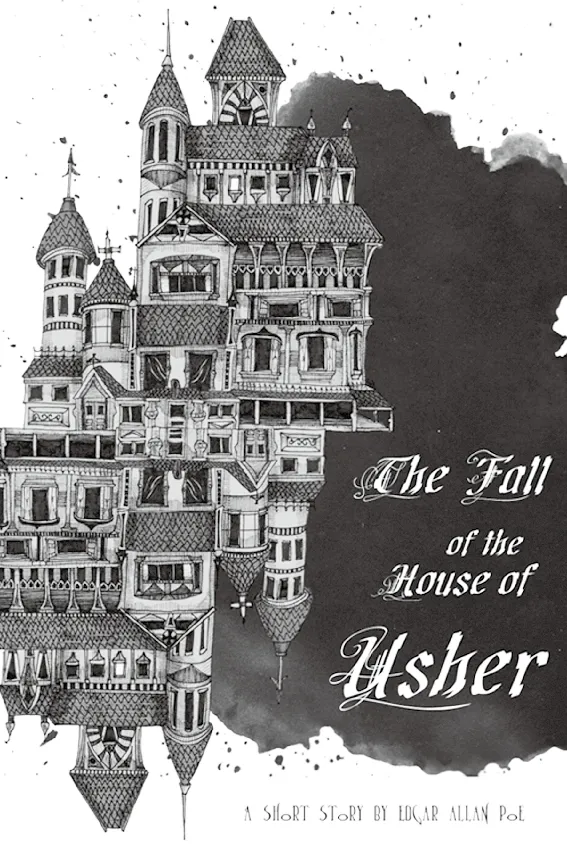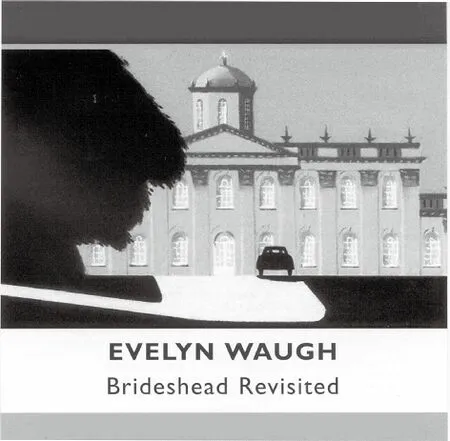古屋
2014-12-27王伟滨
∷王伟滨
近年来,中国人在建筑方面刮起一股“复古风”,只是所“复”之“古”,并非我们自己的,而是西洋的。今日中国各地如同巨型积木一般的高楼大厦之外,这也算体现了另一种审美情趣吧。最近有西方学者Bianca Bosker著书Original Copies: Architectural Mimicry(模仿)in Contemporary China,对此发了一通议论,颇有几分见地。该书称,当下中国建筑的“复古西洋风”(Bosker称此类建筑为duplitecture,系由duplicate与architecture合成)是:“China’s most popular and startling architectural movement: the construction of monumental themed communities(主题社区)that replicate(复制)towns and cities in the West”。当然,说到洋建筑对国人的吸引,本难用简单一句“崇洋风”的评语带过,Bosker便在中国的duplitecture中看到不少“中国特色”,其中最有意味的莫过于其“二元对立”的“和谐存在”吧。Bosker说:“I was intrigued by how at odds(不一致)these developments were with the futuristic, hyper-modern skyscrapers being built—and touted(兜售,吹嘘)—in China’s metropolises(大都市); how dramatically these communities split with China’s own rich architectural traditions; and the gulf(巨大的差距)between the
excitement among developers, residents and officials for these themescapes(主题景观)on the one hand, and the disdain(蔑视)with which they were regarded by many critics and architects on the other”。洋建筑在中国,真可谓:“土豪(大概应译为nouveau riche或local tycoon吧)与洋相齐飞,大厦共残垣一色”。

不过,批评者们的毒舌且慢摇动,想想看,今天中国的建筑之美,除了“复”西洋之古外,可供我们选择的空间实在不多。漫步巴黎、罗马、伦敦(当然又是rich class干的事),满眼都是或华丽或古朴的矗立了数百年的老建筑,令人不得不心生感叹,而环顾我们的故土,又有几座老屋还在人世呢?如此想来,有人愿意将西洋老屋平移到我们的国度,就并不稀奇了。
然而,老屋,特别是西洋老屋,与中国文化的确有诸多格格不入的地方。根本说来,中国人虽然也有老屋情怀,但其程度总难与洋人相比,个中缘由或许是中国建筑主要是易朽的土木结构,与西方坚实的砖石结构相比,难免单薄了许多。今日英国乡间,年代斑驳的古屋仍星罗棋布,且并非展览馆、纪念堂,而是有人生活、繁衍于其中的活生生的居住地;而在我国,即使偶见百年老宅,也或因摇摇欲坠,而被作为危房划入拆除名册,或作为名人故居,而被严加保护,总之是断断不会容人居住的。
细究起来,中西方对于建筑材料“石头”其实有着不同的认识:在我国的建筑中,石头往往并非因为它们的实用价值而被利用,匠人(和收藏者)选择它们的标准首要往往是“奇”(bizarre)——奇石、老树、小桥、流水是中国人在建筑上的审美情趣。即使是不“奇”的石头,也不用来做房子,而是或用来做石碑,或用来做个石狮子,总之是派上些“艺术”用场。而在西方,从古埃及直到19世纪,石头一直是建筑的主要材料,石匠(stonemason)而非木匠(carpenter)也便成了西洋建筑的主角。
中国的故事中,有关老屋的并不多见,即使是直接以“屋”为名,如《红楼梦》,也是主要讲人事,相对于人来说,屋子只能算作点缀和附属,没有了人,大厦重楼也便没有多少意义了。贾宝玉与林妹妹虽然也算大宅子里两个被重重门户锁住的灵魂,但是,显然因为中国房子太过光亮与清秀,使得他们少了那一分老屋“居住者”(是residents而不是owners,因为屋子存在得久了,便不专属于什么人了)应有的“鬼气”(也就是阴沉之气melancholy)。中国的楼台屋宇是因人而建,“雕栏玉砌应犹在,只是朱颜改”,这是中国人的感伤;然而对西洋人而言,屋宇的意义往往远大于人。房子,特别是老房子,几乎总是有自己灵魂的,它们的存在不再是为“居住者”遮风挡雨,而是以它们的宏大、雄伟,甚至僵化,成为一种规范与法则,反倒是居住者成为房屋的一种“装饰”了。
在我读过的有关老屋的书中,印象较深的有爱伦·坡(Edgar Allan Poe)的The Fall of the House of Usher(《厄舍府的倒塌》),伊夫林·沃(Evelyn Waugh)的Brideshead Revisited(《故园风雨后》)和石黑一雄(Kazuo Ishiguro)的The Remains of the Day(《长日将尽》)。Poe是美国人,但他那份对于古屋的迷恋却是属于英国,或至少是欧洲的,与狂野而现代的美国极为不同。在Poe的故事中,Roderick Usher和他的妹妹Madeline住在一栋庞大的、濒临崩塌的古宅(capacious,disintegrating house)中,兄妹二人生命的意义似乎便是等待着与古宅一同逝去的那一天。Roderick相信他生活的整栋古屋是有生命的,古屋已经与居住者之间因为枝枝蔓蔓的联系而合成一体:[He believes in] “the sentience(知觉)of all vegetable things. ... The belief was connected with the gray stones of the home of his forefathers. The conditions of the sentience had been here,he imagined, fulfilled in the method of collocation(排列)of these stones—in the order of their arrangement, as well as in that of the many fungi(霉菌)which overspread(布满)them, and of the decayed(腐朽的)trees which stood around—above all, in the long undisturbed endurance of this arrangement, and in its reduplication in the still waters(止水)of the tarn(小湖). Its evidence—the evidence of the sentience—was to be seen, he said, in the gradual yet certain condensation(凝结)of an atmosphere of their own about the waters and the walls. The result was discoverable,he added, in that silent yet importunate(纠缠不休的)and terrible influence which for centuries had moulded(塑造)the destinies of his family, and which made him what I now saw him—what he was”。总之,砖石结构的房屋,与附着其上的霉菌、枯树、止水、空气和人纠缠在一起,已经分不出彼此。这就是古屋的魔力:老房子House of Usher像一块磁石,像一张蛛网,粘住了所有靠近它的生命,也赋予了所有与它有关的存在物以生命。怪不得故事的叙述者,Roderick Usher的无名朋友,对于这栋老房子会下这样的断语呢:“I know not how it was—but, with the first glimpse of the building, a sense of insufferable gloom pervaded(渗透,弥漫)my spirit. I say insufferable; for the feeling was unrelieved by any of that half-pleasurable, because poetic sentiment with which the mind usually receives even the sternest natural images of the desolate or terrible”。(不知为什么,对这房子只一瞥,我便感到一股无法忍受的阴森之气侵入我的灵魂。我说“无法忍受”,因为面对荒凉或可怕的,哪怕是最冷峻的自然景象,心灵中本会产生某种因为诗意而给人几分愉悦的感觉,但此刻我的心情却并未因此而有丝毫缓解)。
当然,老宅并非全然鬼气,它给人更多的是对于过去的怀念,那“过去”,不论是好是坏,对于有回忆的人来说,大概总是好的。“We possess nothing certainly except the past,”伊夫林·沃说。在《故园风雨后》的Preface(前言)中,对于自己的创作缘起,沃这样说:“It was a bleak period of present privation(匮乏)and threatening disaster(此处指二战时期)—the period of soya beans and Basic English—and in consequence the book is infused(注入)with a kind of gluttony(饥渴,贪食), for food and wine, for the splendors of the recent past, and for rhetorical(修辞的,华丽的)and ornamental(装饰的)language, which now with a full stomach I find distasteful.”在这多少有些对于曾经的“饥渴”有所贬低的话语中,难以抑制地散发着对于秩序、美丽以至繁复的渴望。“It seemed then that the ancestral seats which were our chief national artistic achievement were doomed to decay and spoliation(腐朽)like the monasteries in the sixteenth century”。的确,就交流而言,Basic English比King’s English要实用;就果腹而言,soya beans也比English banquets方便,然而,前者终究无法取代后者。故事的叙述者Charles Ryder被老屋Brideshead和老屋的主人、笃信天主教的Flyte一家所吸引。Roman Catholicism(罗马天主教)以它的华丽和炫目曾令苦行者们颇多微词,然而Brideshead宗教气质却愈加烘托出它的尊严与高贵。就像朴素的新教(Protestantism)面对雍容的,同时也难免显得腐朽的天主教一样,新时代的人们面对庄严的老宅,也总是同样心怀复杂情感。于是,在多年之后,当Charles机缘巧合,在战争中重游Brideshead,虽然旧地已是满目疮痍,但他却分明看到了老宅中散发出新的光明:“Something quite remote from anything the builders intended, has come out of their work, and out of the fierce little human tragedy in which I played; something none of us thought about at the time; a small red flame—a beaten-copper(铜箔)lamp of deplorable(糟糕的)design relit before the beatencopper doors of a tabernacle(神龛); the flame which the old knights saw from their tombs, which they saw put out;that flame burns again for other soldiers, far from home,farther, in heart, than Acre(圣地阿科古城)or Jerusalem(耶路撒冷). It could not have been lit but for the builders and the tragedians(悲剧作家), and there I found it this morning, burning anew among the old stones”。

不过,对于古屋的忠诚与热爱,可能更多的并非来源于古屋的主人,或是Charles Ryder这样的局外仰慕者,而是来自古屋的看护者,尽责的butler(管家)。《长日将尽》中的主人公Stevens,便是这样的一个butler,一个多少有些傻气的,然而又极为郑重其事的看护者。古屋不像一般的cottage(农舍),它注定是无法让人开玩笑的,因此,Stevens对于古屋的新主人来自美国的绅士Mr. Farraday的banters(玩笑)颇为介意;虽然他也曾努力要“reciprocate my employer’s bantering”(回应雇主的玩笑),但却总是难以成功,因为,若是像Darlington Hall这样的老宅也容得下“玩笑”,那么这老宅便也就失去意义了。有时候,“老顽固”也可以算作一种“尊严”的体现吧。
最后要说的是,对于西洋古屋的兴趣,也算是中国人在经历了轰轰烈烈、摧枯拉朽的“拆迁风潮”之后在“建筑审美”上的一种觉醒吧;虽然在懵懵懂懂中,我们已经不记得自己的过去究竟是怎样的,对于将来也仅有些模糊的想法。不过,愿意记住一些过去,哪怕是别人的过去,终究不是件坏事。
